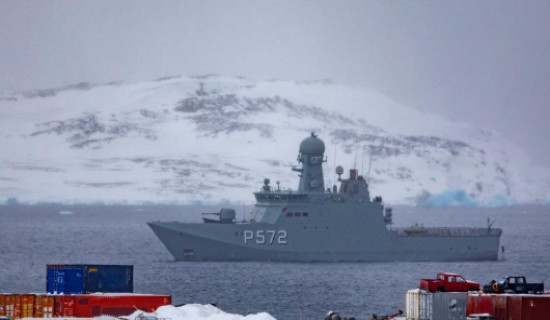- Tuesday, 13 January 2026
Mediation Works When Conflict Situation Is Ripe
Nepal’s peace process that finally led to ending of the decade-long armed conflict during the previous decade was more or less a home-grown exercise though support for this was provided by different national and international agencies over the years. It can be said that the commitment of political leaders, the civil society activists and ordinary citizens who protested on the streets, lobbied and worked to implement a vision of peace, democracy and freedom was instrumental consequently to secure the positive outcome. Nepal Transition to Peace (NTTP) played a major behind-the-scenes role in supporting and hosting informal dialogues among Nepali stakeholders. According to a report, late Padma Ratna Tuladhar, Daman Nath Dhunghana, NTTP’s Nepali staff and international advisers, led by the Peace Appeal’s Hannes Siebert, provided a steady chorus of advice and facilitation services.
However, during the initial phase of conflict, the dialogue facilitated by basically the two homegrown Nepali widely revered mediators - late Tuladhar and Dhungana - with their different political perspectives, temperament and outlooks did not yield any substantive results to break the stalemate. Basically, three aspects can be said to be responsible for the poor performance of the conflict negotiation initiative in those days. The first aspect was the lack of practical experiences, competence and skills of mediators themselves as they were not trained and exposed in the discipline of conflict mediation despite their short term exposures and study visits to conflict settlement initiatives in different parts of the world. Moreover, neutrality, independence and negotiation skills are said to be the core competence of mediators. Both Dhungana and late Tuladhar were not perceived to be independent because of their past political leanings, background and predispositions.
Premature stage
Maoists were ranged against the state institutions and parliamentary polity including the monarchy whereas the government during those day was not ready to accommodate and concede to these Maoist positions as monarchy was at the helm of affairs. Needless to stress, an incompatibility in the positions of the conflicting parties makes negotiation difficult to resolve and reach conclusion.
Another aspect why attempts to facilitate dialogue and nudge the parties to take recourse to conflict negotiation could not muster much headways and bear fruit was that the conflict was in its escalation or premature stage. The parties to the conflict had not been yet able to assess and ascertain limits of their strength to fight the war.
As the Maoist influence and support was spreading across the rural hinterland of the country, forcing the state agencies to retreat and limit their operation in the district headquarters, it had lent an impetus to their morale and confidence. They were not ready to compromise as their overtures indicated that they were more or less assured of winning the war.
Attempts to mediate the conflict can bear fruit only when parties were willing and ready to work together to resolve the issues through dialogue. Most of the studies on peaceful settlement of conflicts see the substance of the proposals for a solution as the key to a successful resolution of issues. However, a growing focus of attention of other studies shows that a second and equally necessary key lies in the timing of efforts for resolution. Parties resolve their conflict only when alternative, usually unilateral, means of achieving a satisfactory result are blocked and the parties feel that they are in an uncomfortable and costly predicament. At that ripe moment, they seek or are amenable to proposals that offer a way out. The idea of a ripe moment lies at the fingertips of diplomats and conflict assessors. As long ago as in 1974, late Henry Kissinger the world renowned strategic realist and US secretary of State who died last year, had taken cognizance of the fact that “stalemate is the most propitious condition for conflict settlement." Mediation practitioners often are heard to say that certain mediation initiatives are not advisable because the conflict just is not yet ripe.
Mutually hurting stalemate
According to conflict researcher Zatman (1989), concept of a ripe moment centers on the parties’ perception of a mutually hurting stalemate which is associated with an impending, past or recently avoided catastrophe. The concept is based on the notion that when the parties find themselves locked in a conflict from which they cannot escalate to victory and this deadlock is painful to both of them. They seek an alternative policy or way out of the conflict situation. Ripeness is necessarily a perceptual event. As with any subjective perception, there are likely to be objective referents to be perceived.
These can be highlighted by a mediator or an opposing party when they are not immediately recognised by the party itself. Ripeness, according to conflict researchers, is the key to many successful cases of negotiation, opening the way for discussions that lead to an agreement in the Sinai (1974), Southwest Africa (1988), El Salvador (1988), Mozambique (1992) and so on.
The lack of ripeness led to the failure of attempts to open negotiations between Eritrea and Ethiopia in the late 1980s, within Sudan for decades, and elsewhere. The ripe moments, however, were not transformed into successful agreements in Karabagh in 1994, in Cyprus in 2002, and elsewhere. Maoist guerrilla’s attack on the army base at Khara, in the mid-western Rukum District in May 2002 was a turning point of the ten-year-long conflict in Nepal.
The rebel attack was repulsed with over 150 Maoists killed - the heaviest Maoist loss of the entire conflict. For Maoist chief Prachanda - the defeat must have come as a crushing personal blow. The Khara defeat also left the Maoist military reputation bruised and battered and they were seeking a way out. The Khara defeat was a propitious moment for the settlement of the conflict.
(The author is presently associated with Policy Research Institute (PRI) as a senior research fellow. rijalmukti@gmail.com)
















